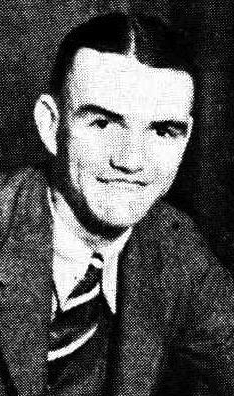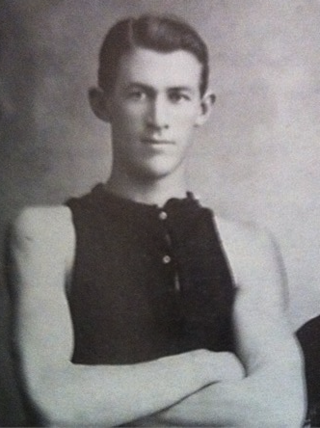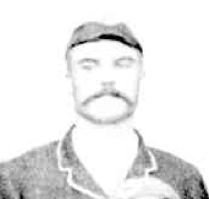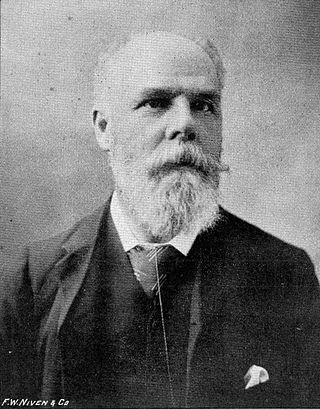Related Research Articles

The West Australian Football League is an Australian rules football league based in Perth, Western Australia. The league currently consists of ten teams, which play each other in a 20-round season usually lasting from April to September, with the top five teams playing off in a finals series, culminating in a Grand Final. The league also runs reserves, colts (under-19) and women's competitions.

Haydn William Bunton was an Australian rules footballer who represented Fitzroy in the Victorian Football League (VFL), Subiaco in the West Australian Football League (WAFL), and Port Adelaide in the South Australian National Football League (SANFL) during the 1930s and 1940s.

The West Perth Football Club, nicknamed the Falcons, is an Australian rules football club located in Joondalup, Western Australia. West Perth competes in the West Australian Football League (WAFL) and WAFL Women's (WAFLW) and is the oldest existing Australian rules football club in Western Australia. Originally located at Leederville Oval, the team was relocated in 1994 to Arena Joondalup, a sports complex in the northern suburbs of Perth. The team's club song is "It's a Grand Old Flag" and its traditional rivals are East Perth.

George Ronald Doig was an Australian rules footballer who played for and later coached the East Fremantle Football Club in the Western Australian National Football League (WANFL). A member of the Doig sporting family, Doig kicked 1095 goals from his 202 games playing almost exclusively as a forward, becoming East Fremantle's leading goalkicker of all-time, and leading the WANFL's goalkicking on six occasions. He kicked more than 100 goals in a season nine times, which included a haul of 152 goals in 1934 that set an elite record which was not broken until Bernie Naylor kicked 167 goals in 1953. Doig captained the club for two seasons, from 1940 to 1941, also filling the role of coach during the first season.

Burley-Sekem Pty Ltd is an Australian sports equipment manufacturing company. It was formed in 1985 from the merger of "Burley Sports Pty Ltd", and "Sekem Pty Ltd.". The company has since merged with Kookaburra Sport.

Sydney Campbell "Sammy" Clarke was an Australian rules footballer who played for Claremont in the Western Australian National Football League (WANFL) between 1933 and 1941. He won the Sandover Medal in his first two seasons in the competition, making him the first player to win the award in consecutive years. Clarke won a premiership with Claremont in 1939, and also represented Western Australia in eight interstate games. He served as a pilot with the Royal Australian Air Force (RAAF) during World War II, but was killed in action in New Guinea towards the end of the war.

Thomas Outridge was an Australian rules football player and administrator. Originally from Ballarat, Victoria, he played 201 games for Perth and Subiaco in the West Australian Football League (WAFL), and also represented Western Australia in 25 interstate matches, captaining the side at the 1930 Australian National Football Carnival. Outridge was also the winner of the inaugural Sandover Medal, in 1921.

Derwas Goring Charles "Dave" Cumming was an Australian rules footballer and soldier who was killed in the First World War.
The Fremantle Football Club was an Australian rules football club based in Fremantle, Western Australia, that played in the Western Australian Football Association (WAFA) from 1886 to 1899. The club was known as the Union Football Club from 1882–89.
Australian rules football has been played in the Goldfields region of Western Australia since the late 1890s, when the Western Australian gold rush brought an influx of immigrants from Victoria and South Australia, bringing the sport with them.
The West Australian State Premiership was an Australian rules football match contested intermittently between 1902 and 1924 between the premiers of the Western Australian Football Association / West Australian Football League and the Goldfields Football Association / Goldfields Football League.

Wyborn Herbert George "Herbie" Screaigh was an Australian rules footballer who played for the East Perth Football Club in the Western Australian National Football League (WANFL).

Oswald Ifould Lovelock was an Australian sportsman and sports administrator. He represented Western Australia at cricket and baseball, and also played football for West Perth in the West Australian National Football League (WANFL). In later life, he took up golf, winning several tournaments at clubs in Western Australia, and went on to serve as president of the Subiaco Football Club.

Percival Leitch Hussey was an Australian sportsman. He played first-class cricket for Western Australia, football for the Rovers Football Club in the West Australian Football Association (WAFA), and was also a noted runner.

William Vincent Duffy was an Australian sportsman who played cricket for Western Australia and football for the Rovers and West Perth Football Clubs in the West Australian Football Association (WAFA). He also umpired at high levels in both sports.
Alfred Augustine Moffat was an Australian sportsman and sports administrator. He played first-class cricket for Western Australia and Australian rules football for several clubs in the West Australian Football League (WAFL). After retiring from playing, he served as president of the WAFL from 1920 to 1932, and was also president of the Australian Football Council (AFC) from 1924 to 1929.

Domenick Louis "Don" Marinko was an Australian rules footballer who played for the Subiaco and West Perth Football Clubs in the Western Australian National Football League (WANFL) and the Boulder City Football Club in the Goldfields Football League (GFL). Born in the Goldfields region of Western Australia, he was educated at Christian Brothers' College in Perth, and made his senior debut for Subiaco in 1923, at the age of 16. The following season, Marinko returned to the Goldfields in order to find work in the mines, and took up playing for the Boulder City Football Club in the Goldfields Football Association (GFA), playing in premierships in 1924 and 1925. Returning to Perth, he fell into West Perth's zone, and began playing with the club in 1926. Marinko played in premiership sides for West Perth in 1932, 1934, and 1935, and was captain of the club for the latter two seasons. At his retirement in 1939, he had played 194 games for the club, and 197 games total in the WAFL, as well as playing thirteen interstate matches for Western Australia. Having died in 1967 from a sudden heart attack, Marinko was named in West Perth's Team of the Century in 2000, and inducted into the West Australian Football Hall of Fame in 2011.
The Victorian Football Club, often referred to as Victorians or Vics, was an Australian rules football club based in Perth, Western Australia. Formed in 1885, the club was a founding member of the West Australian Football Association (WAFA), which was established the same year. The club merged with the West Australian Football Club at the end of the 1888 season to form the Metropolitan Football Club.

Edward Vivian Harvey Keane was an Australian engineer, businessman, and politician. Born in Birkenhead, England, he was educated at Christ's Hospital, and emigrated to Melbourne, Victoria, in 1876. Keane then moved to South Australia, where he worked as a railway engineer. He later moved to Western Australia, where he served in both the Legislative Assembly and the Legislative Council.
The Metropolitan Football Club was a West Australian Football League club based in Perth, Western Australia. The club was formed in 1888 after merging the Victorians and West Australian Football Club at the end of the 1888 season.
References
- ↑ "News of the Day". The Daily News . 17 June 1887. p. 3. Retrieved 16 July 2012.
- ↑ NEWS OF THE DAY. – The Daily News . Published Saturday, 17 July 1886. Retrieved from Trove, 27 June 2012.
- ↑ MERCANTILES V. WEST AUSTRALIANS. – The West Australian . Published Friday, 10 September 1886. Retrieved from Trove, 27 June 2012.
- ↑ WEST AUSTRALIANS V. MERCANTILES. – The Western Mail . Published Saturday, 7 August 1886. Retrieved from Trove, 27 June 2012.
- ↑ MEETING OF THE W.A. FOOTBALL ASSOCIATION. – The Western Mail . Published Saturday, 7 May 1887. Retrieved from Trove, 27 June 2012.
- ↑ PERTH F.C. VS WEST AUSTRALIAN F.C. – The West Australian . Published Tuesday, 14 June 1887. Retrieved from Trove, 27 June 2012.
- ↑ NEWS OF THE DAY. – The Daily News . Published Friday, 27 MAY 1887. Retrieved from Trove, 27 June 2012.
- ↑ NEWS OF THE DAY. – The Daily News . Published Friday, 26 August 1887. Retrieved from Trove, 27 June 2012.
- ↑ UNIONS VS. WEST AUSTRALIANS. – The Western Mail . Published Saturday, 16 June 1888. Retrieved from Trove, 27 June 2012.
- ↑ FOOTBALL. – Western Mail . Published Saturday, 27 April 1889. Retrieved from Trove, 27 June 2012.
- ↑ WA Football Club – Full Points Footy. Archived by the National Library of Australia. Retrieved 27 June 2012.